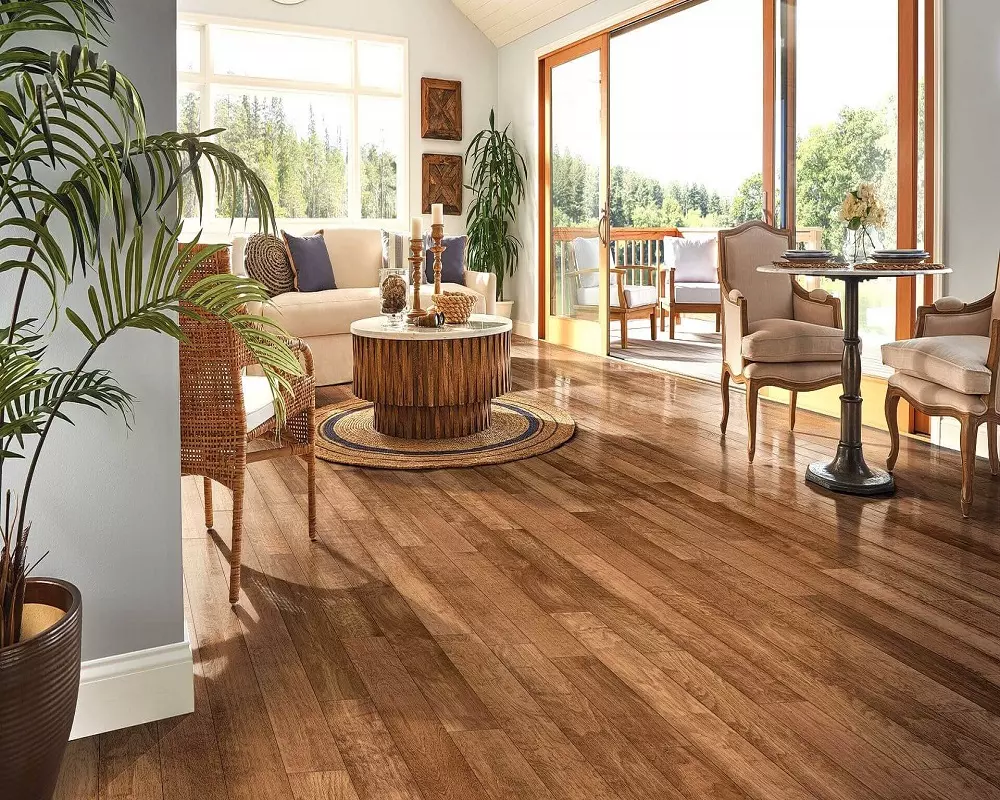FAQ
A: With proper care and maintenance, hardwood flooring can last for several decades. Some high-quality hardwood floors can even last for a century or more.
A: Traditional solid hardwood flooring is not recommended for areas with high humidity or moisture. However, engineered hardwood flooring, which is more resistant to moisture, can be a suitable option for these areas.
A: Regular cleaning is essential to maintain the beauty of hardwood floors. It is recommended to sweep or vacuum your floors at least once a week. Additionally, damp mopping with a hardwood floor cleaner can be done every 2-4 weeks, depending on foot traffic.
A: While hardwood floors are durable, they can still be susceptible to scratches. To minimize scratches, it’s advisable to use protective felt pads on furniture legs, avoid dragging heavy objects, and promptly clean up any spills or debris.
A: Yes, one of the advantages of hardwood flooring is that it can be refinished multiple times. This process involves sanding down the surface to remove imperfections and applying a new finish, allowing you to revitalize the appearance of your floors.
A: Yes, there are eco-friendly options available. Look for hardwood floors certified by organizations such as the Forest Stewardship Council (FSC), which ensures sustainable sourcing practices. Additionally, some manufacturers offer reclaimed or recycled hardwood flooring options.
A: The cost of hardwood flooring installation can vary depending on factors such as the type of hardwood, the size of the area, any additional preparations required, and the location. It’s best to obtain quotes from reputable installers to get an accurate estimate.
A: In some cases, hardwood floors can be installed over existing flooring, such as plywood or concrete, as long as certain conditions are met. It’s recommended to consult with a professional installer to assess the feasibility and requirements for your specific situation.





